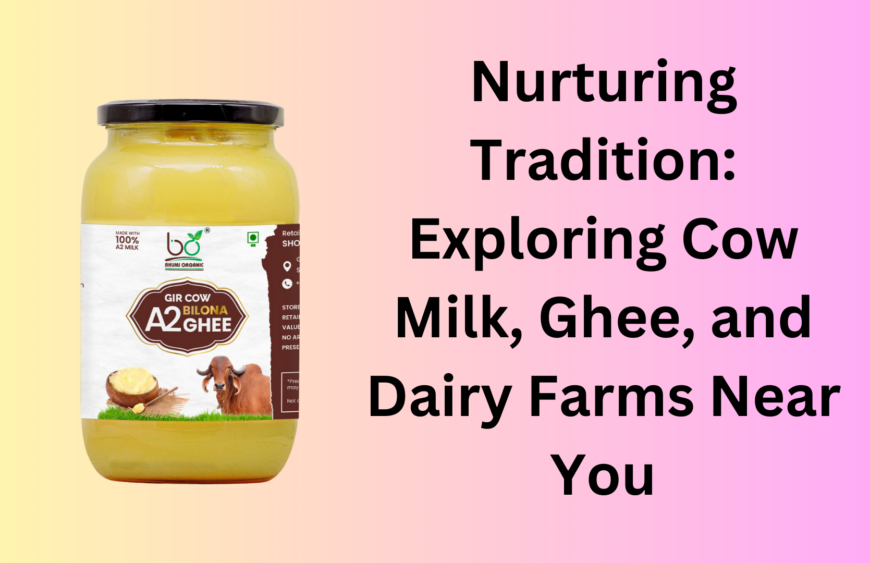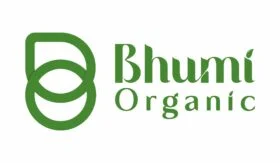Nurturing Tradition: Exploring Cow Milk, Ghee, and Dairy Farms Near You

1. The Essence of Cow Milk:
Cow milk is a staple food known for its rich nutrient profile. It contains essential nutrients like calcium, protein, vitamins, and minerals, making it a vital component of a balanced diet. Calcium, in particular, plays a crucial role in bone health, muscle function, and nerve transmission. Protein contributes to muscle repair and growth, while vitamins and minerals support various bodily functions.
Beyond its nutritional value, cow milk is valued for its versatility in cooking and baking. It adds creaminess and flavor to dishes like curries, desserts, and beverages. Its lactose content, a natural sugar found in milk, provides a source of energy for the body.
2. Cow milk and its health benefits:
Cow’s milk offers numerous health benefits. Its calcium content supports bone density and prevents conditions like osteoporosis. Protein aids in muscle development and repair, making it beneficial for athletes and individuals engaged in physical activity. The B vitamins in milk play a role in energy metabolism, while vitamin D promotes calcium absorption and immune function.
Contrary to common misconceptions, cow milk is well-tolerated by most people. It provides a complete package of nutrients, including carbohydrates, fats, proteins, vitamins, and minerals, making it a nutritious beverage choice.
3. Cow Milk and Ethical Farming:
Ethical farming practices are essential for sustainable dairy production. This includes providing cows with proper nutrition, access to pasture, and humane living conditions. Organic farming methods, free from synthetic pesticides and hormones, are gaining popularity due to their environmental and health benefits.
Supporting ethical dairy farms ensures the well-being of cows and promotes sustainable agriculture. It also encourages transparency in farming practices, allowing consumers to make informed choices about the products they purchase.
4. Exploring Cow Ghee:
Cow ghee, also known as clarified butter, is a traditional ingredient with cultural and culinary significance. It is made by simmering butter to remove water and milk solids, leaving behind pure butterfat. Cow ghee has a high smoke point, making it suitable for cooking at high temperatures without burning.
In addition to its rich flavor, cow ghee offers potential health benefits. It is a source of healthy fats, including omega-3 fatty acids and conjugated linoleic acid (CLA), which have been linked to heart health and inflammation reduction. Cow ghee is also lactose-free and can be tolerated by individuals with lactose intolerance.
5. Dairy Farms Near You:
Local dairy farms play a crucial role in providing fresh, high-quality cow milk to communities. By supporting local farms, consumers contribute to the local economy, reduce transportation emissions, and ensure access to fresh dairy products. Many dairy farms offer tours and educational programs, allowing visitors to learn about dairy production and animal care.
6. Cow Milk Delivery Services:
Cow milk delivery services provide convenience and freshness to consumers. They offer a direct connection between dairy farms and households, ensuring that milk is delivered promptly and in optimal condition. Delivery services may also offer a range of dairy products, including milk, cheese, yogurt, and butter.
7. Cow Milk Products and Variants:
The dairy industry offers various cow milk products to cater to different preferences and dietary needs. This includes full-fat milk, low-fat milk, flavored milk, cheese, yogurt, and butter. Each product variant has unique characteristics and nutritional profiles, allowing consumers to choose options that align with their health goals and taste preferences.
8. Cow Milk in Urban Settings:
In urban areas, access to fresh cow milk may be facilitated through supermarkets, specialty stores, farmers’ markets, and online platforms. Consumers can choose from a range of packaging options, including cartons, bottles, and pouches, based on their convenience and usage preferences. Urban consumers can also explore dairy alternatives like plant-based milks, although cow milk remains a popular choice for its nutritional benefits and culinary versatility.
9. Cow Milk and Cultural Heritage:
Cow milk holds cultural significance in many societies, symbolizing purity, nourishment, and prosperity. It is often used in religious rituals, traditional ceremonies, and festive celebrations. In countries like India, cows are revered as sacred animals, and cow milk is considered a symbol of abundance and divine blessings.
10. The Future of Cow Milk and Sustainable Farming:
The future of cow milk production lies in sustainable farming practices and technological advancements. This includes innovations in animal welfare, resource efficiency, waste management, and environmental conservation. Consumers’ growing interest in ethical sourcing, organic products, and animal welfare standards will continue to shape the dairy industry’s evolution. As technology evolves, dairy farms may adopt automated systems, precision farming techniques, and sustainable energy solutions to improve efficiency and reduce environmental impact.
Related Articles
Categories
Recent Comments
Recent Posts
Tags
A2 milk Aged garlic Anti-inflammatory Ayurvedic medicine Bilona method Black garlic bread Black garlic chicken Black garlic extract Black garlic hummus Black garlic mayonnaise Black garlic oil Black garlic paste Black garlic powder Black garlic recipes Black garlic salt Black garlic seasoning Black garlic shrimp Black garlic steak Black garlic supplements Black garlic tofu Black garlic vinegar Butyric acid Conjugated linoleic acid (CLA) Cooking oil alternative Digestive health Fat-soluble vitamins Fermented garlic Gir cow Grass-fed cows Gut bacteria Health benefits Health benefits of black garlic Natural ghee Nutritious fat Omega-6 fatty acid Organic ghee Pure butterfat Pure ghee Rich flavour Roasted garlic Spread alternative Sweet garlic Traditional churning method Traditional Indian ghee Umami flavour




